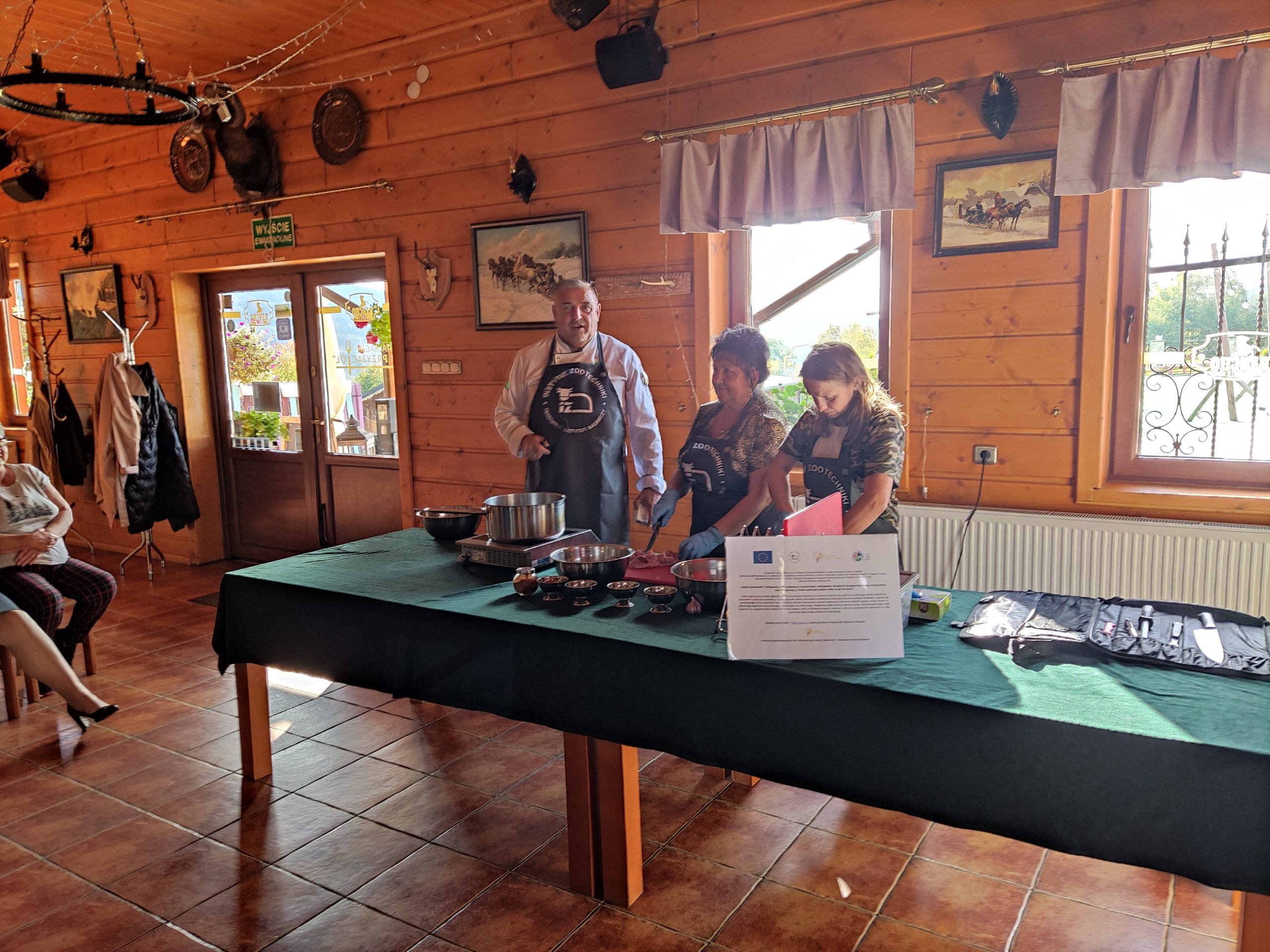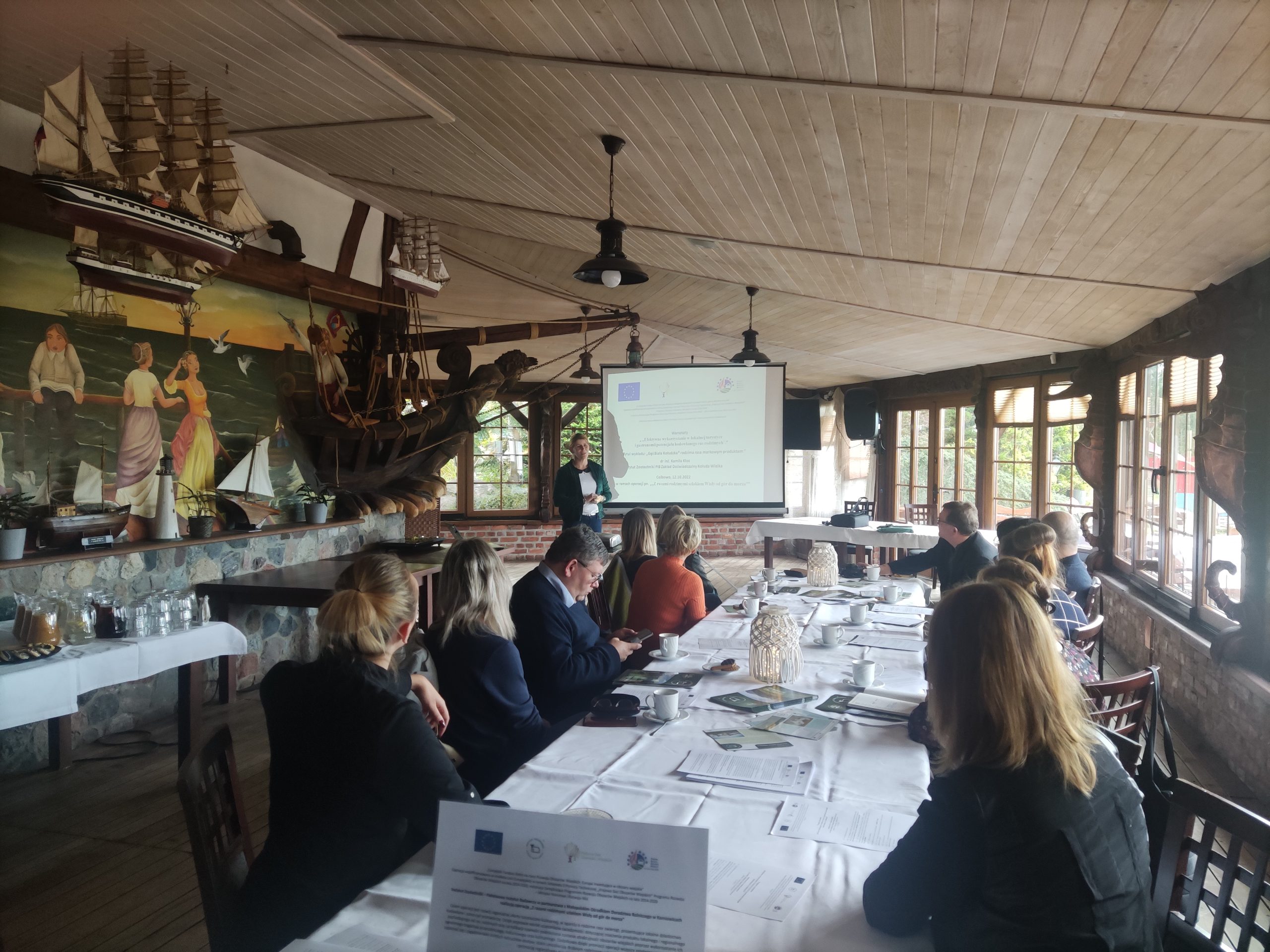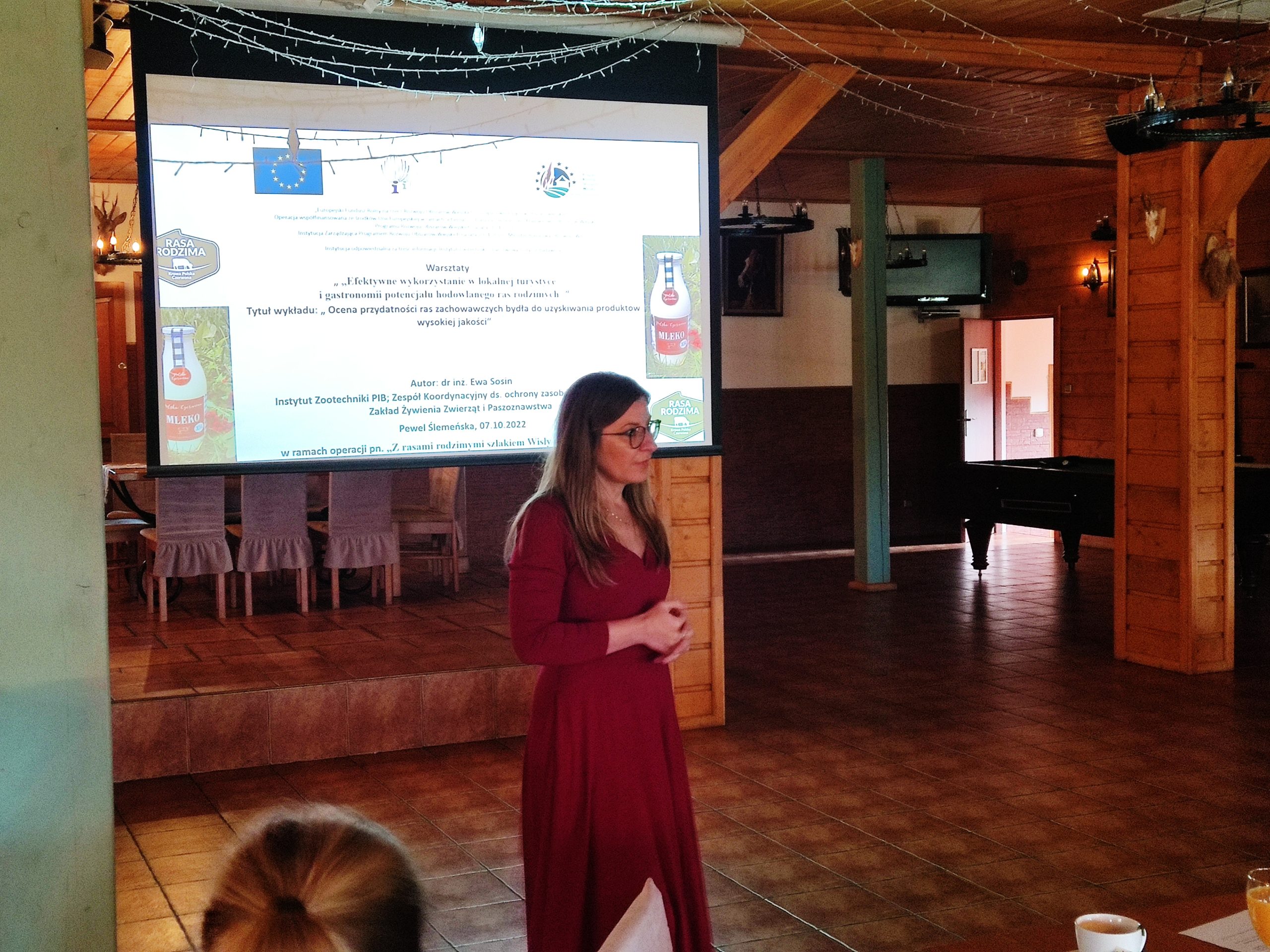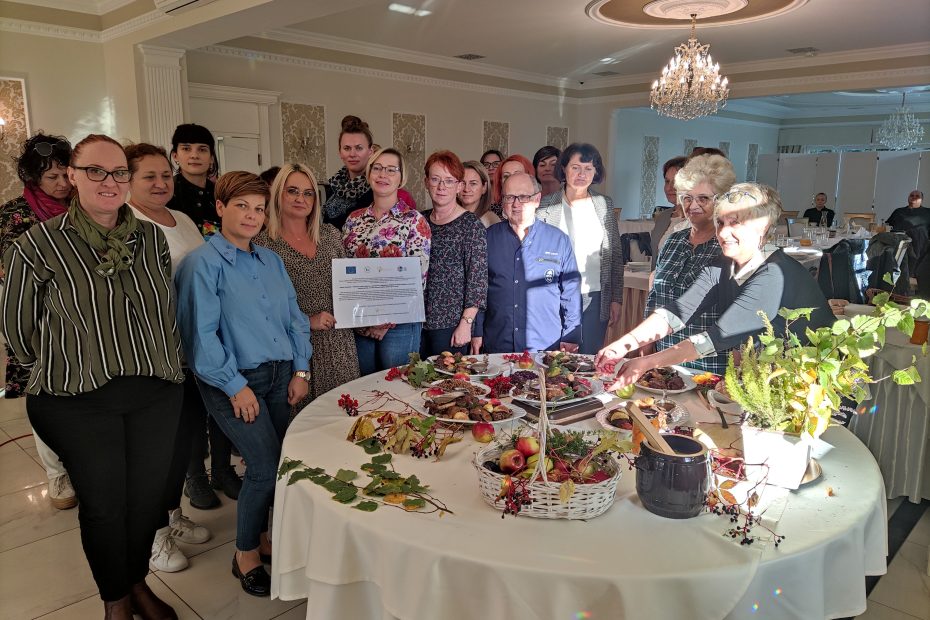
„Europejski Fundusz Rolny na rzecz Rozwoju Obszarów Wiejskich: Europa inwestująca w obszary wiejskie”
Operacja współfinansowana ze środków Unii Europejskiej w ramach Schematu II Pomocy Technicznej „Krajowa Sieć Obszarów Wiejskich” Programu Rozwoju Obszarów Wiejskich na lata 2014-2020 Instytucja Zarządzająca Programem Rozwoju Obszarów Wiejskich na lata 2014-2020 – Minister Rolnictwa i Rozwoju Wsi
On 5–24 October 2022 the educational and culinary workshops, “Effective use of the breeding potential of native breeds in local tourism and gastronomy”, were held as part of the operation “With Native Breeds on the Mountains to Sea Trail along the Vistula River”. The workshops, organized by the National Research Institute of Animal Production in partnership with the Małopolska Agricultural Advisory Centre in Karniowice, marked the first stage of the operation. The event was attended by 136 people – representatives of rural housewives’ associations, the food service industry, associations, processors, representatives of the central and local government administration, farmers, and representatives of science.
The educational and culinary workshops were organized in eight voivodeships on the trail along the Vistula River. Catering facilities situated along tourist and culinary trails, as well as those in regions with native breeds of farm animals, were selected. They were based on the same model except for a difference in the breeds chosen for particular locations.
5 October 2022 – Hotel Batory – Park Górny 13, 34-460 Szczawnica, Małopolskie Voivodeship
7 October 2022 – Ranczo Adama – ul. Wiosenna 15, 34-331 Pewel Ślemieńska, Śląskie Voivodeship
10 October 2022 – Posmakuj Warszawa – ul. Domaniewska 50B, 02-672 Warszawa, Mazowieckie Voivodeship
11 October 2022 – Pałacyk Gazdowa – Łochocin 6, 87-600 Łochocin, Kujawsko-Pomorskie Voivodeship
12 October 2022 – Nordowy Mol – Celbowo 27A, 84-100 Puck, Pomorskie Voivodeship
17 October 2022 – Pensjonat Roztocze – Obsza 138, 23-413 Obsza, Lubelskie Voivodeship
19 October 2022 – Hotel Tęczowy Młyn – ul. Zakładowa 4, 25-670 Kielce, Świętokrzyskie Voivodeship
24 October 2022 – Restauracja Philadelphia, ul. Zdrojowa (Atrium) 28, 38-610 Polańczyk, Podkarpackie Voivodeship
In the theoretical portion, experts discussed the following issues:
- native breeds of sheep, including the value of the raw materials derived from them, which can be used in gastronomy and processing – Michał Puchała, Ph.D. Eng. (Szczawnica) and Marta Pasternak, Ph.D. Eng. (Pewel Ślemieńska), Prof. Bronisław Borys, Ph.D. (Łochocin, Celbowo), Jacek Sikora, Ph.D. Eng. (Kielce), Aldona Kawęcka Ph.D., Prof. of NRIAP (Polańczyk);
- native breeds of cattle, including the value of the raw materials derived from them, which can be used in gastronomy and processing – Ewa Sosin, Ph.D. Eng. (Szczawnica, Pewel Ślemieńska, Warsaw), Anna Majewska, Ph.D. Eng. (Kielce);
- native breeds of pigs, including the value of the raw materials derived from them, which can be used in gastronomy and processing – Magdalena Szyndler-Nędza, Ph.D. (Warszawa, Obsza);
- native breeds of hens, geese and ducks, including the value of the raw materials derived from them, which can be used in gastronomy and processing – Kamila Kłos, Ph.D. Eng. (Łochocin, Celbowo), Jolanta Calik, Ph.D. Eng. (Obsza), Prof. Józefa Krawczyk, Ph.D. (Polańczyk).
- advantages of the short supply chain [CW1]: breeder–caterer–consumer based on the local raw material potential of the native breeds – Krzysztof Zieliński, M.Sc. (Szczawnica, Pewel Ślemieńska, Warsaw, Celbowo, Kielce, Obsza, Polańczyk), Piotr Lenart, M.Sc. (Łochocin).
Each presentation was accompanied by a substantive discussion and exchange of views and experiences.
In the practical portion, “Effective use of local native breeds in the region’s tourist and culinary offer”, culinary experts Wiesław Wróblewski (Szczawnica, Pewel Ślemieńska, Kielce) and Andżelika Chorąży (Warszawa, Łochocin, Celbowo, Obsza, Polańczyk) showed how to make dishes from native lamb, pork, goose meat, duck meat, and beef.
The classes were professionally prepared and their subject matter has attracted keen interest. Oftentimes the participants were able to make dishes by themselves and showed high involvement, which will translate into development of the regional tourist and culinary offer, based on the native breeds of animals. The expertise and information on using the breeding, culinary and tourist potential of native breeds, provided to representatives of local initiatives (associations, rural housewives’ associations), processors/caterers, and other entities engaged in the development of rural areas, will help promote the idea of agricultural retail trade and short supply chains as components enabling farmers to obtain an additional source of income and fostering entrepreneurship in the country.






